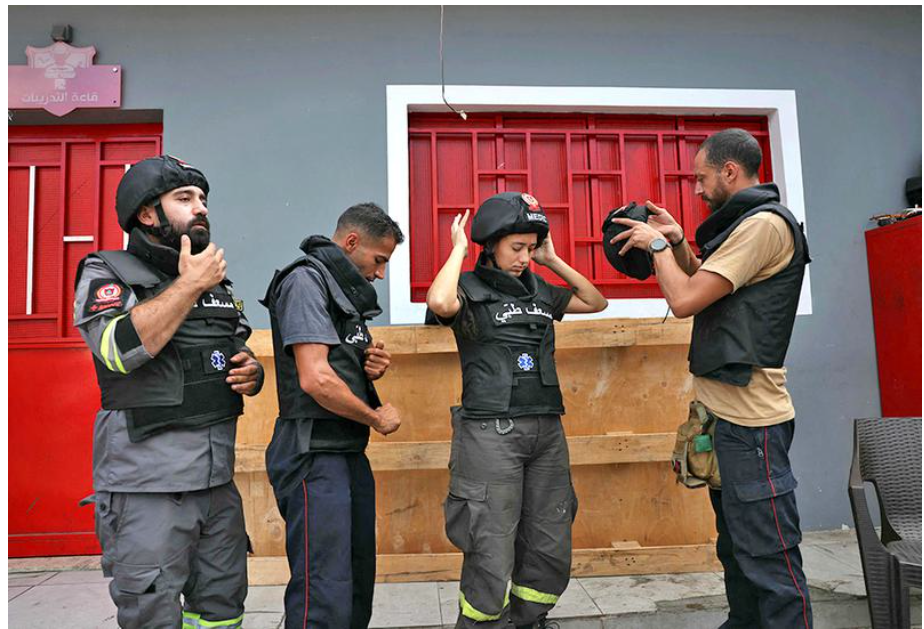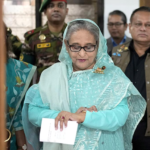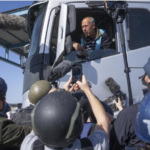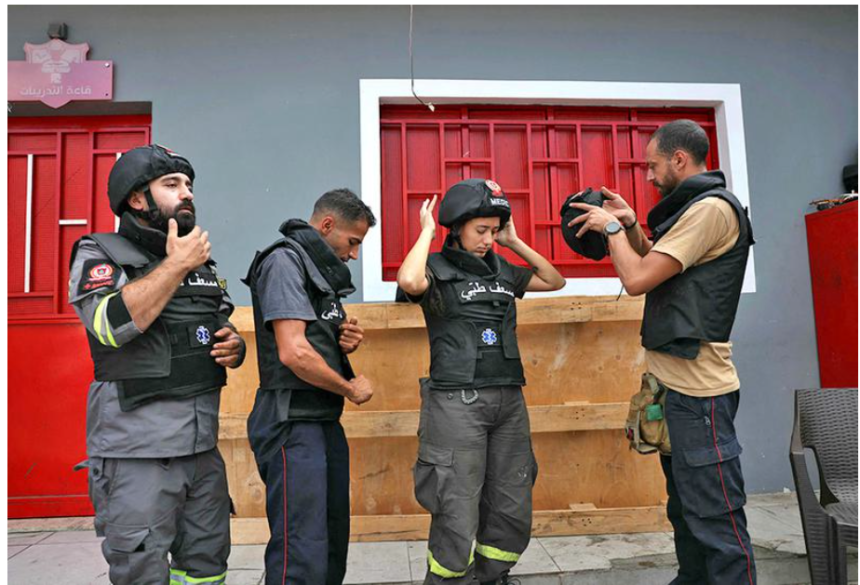Guterres strong and unequivocal statement, United Nations Secretary-General António Guterres warned Israel that attacks against UN peacekeepers could constitute war crimes under international law. This warning was issued amid heightened tensions in the Middle East, as clashes between Israeli forces and Hezbollah militants along the Lebanon-Israel border have escalated in recent months. The presence of United Nations peacekeepers, specifically the United Nations Interim Force in Lebanon (UNIFIL), has become increasingly precarious as hostilities have intensified, putting these international forces in harm’s way.
Guterres’s warning comes at a crucial time, highlighting the vulnerability of UN peacekeepers who are tasked with maintaining peace and security in volatile regions. His message not only underscores the legal ramifications of such attacks but also calls for the protection and respect of peacekeepers who operate under the banner of neutrality to prevent conflicts from spiraling out of control.
This article will explore the significance of Guterres’s warning, the role of UN peacekeepers in conflict zones, the legal framework around attacks on peacekeeping forces, the broader geopolitical context of the Israel-Lebanon border clashes, and the potential consequences of continued violence in the region.
1. The Role of UN Peacekeepers in Lebanon: Protecting Fragile Peace
The United Nations Interim Force in Lebanon (UNIFIL) was established in 1978, following Israel’s invasion of southern Lebanon, to oversee the withdrawal of Israeli forces and restore peace and stability in the region. Since then, the mission’s mandate has expanded, particularly after the 2006 Lebanon War between Israel and Hezbollah. UNIFIL’s primary responsibilities include monitoring the cessation of hostilities, supporting the Lebanese Armed Forces in maintaining security, and ensuring humanitarian access to affected populations.
With more than 10,000 peacekeepers from over 40 countries, UNIFIL plays a vital role in maintaining a buffer between Israeli and Hezbollah forces along the Blue Line, a UN-demarcated boundary between Lebanon and Israel. Peacekeepers patrol this region daily, work to de-escalate tensions, and ensure that minor incidents do not escalate into full-scale conflicts. Despite these efforts, the region remains highly volatile, and UNIFIL peacekeepers often find themselves caught in the crossfire of hostilities between Hezbollah militants and Israeli forces.
In recent years, there have been several incidents where UN peacekeepers have been targeted or injured in attacks, raising concerns about their safety and the ability of the UN to effectively carry out its peacekeeping mission. These incidents prompted Secretary-General Guterres to issue his stern warning to Israel, emphasizing that attacks against peacekeepers could amount to war crimes under international law.
2. Legal Protections for Peacekeepers: A Pillar of International Law
The safety and security of UN peacekeepers are enshrined in several international legal frameworks, including the Geneva Conventions, which provide protections for individuals involved in humanitarian work, including peacekeepers. Under international law, attacks on peacekeepers can be considered war crimes, as they are non-combatants who operate with the mandate of the United Nations to promote peace and security.
The Rome Statute of the International Criminal Court (ICC) also includes provisions for the protection of peacekeepers. Article 8 of the Rome Statute explicitly states that “intentionally directing attacks against personnel, installations, material, units, or vehicles involved in a humanitarian assistance or peacekeeping mission” is considered a war crime, provided that the peacekeepers are entitled to protection under international law.
Guterres’s warning to Israel highlights the seriousness with which the UN views any attacks on its peacekeeping forces. While the Secretary-General did not specifically accuse Israel of committing war crimes, his statement serves as a reminder that such actions are not immune from international scrutiny and legal repercussions.
3. Rising Tensions on the Lebanon-Israel Border: A Recipe for Conflict
The Lebanon-Israel border has long been a flashpoint for conflict in the Middle East, with Hezbollah and Israeli forces engaged in periodic skirmishes and clashes. Hezbollah, a Shiite militant group backed by Iran, operates as both a political party and an armed faction in Lebanon. Since its formation in the 1980s, Hezbollah has maintained an adversarial relationship with Israel, with the two sides engaging in numerous conflicts, most notably the 2006 Lebanon War.
In recent months, tensions along the Blue Line have escalated, with both Israel and Hezbollah accusing each other of provocations. Israeli officials have expressed concern over Hezbollah’s growing military capabilities, particularly its stockpile of rockets and missiles that can reach deep into Israeli territory. On the other hand, Hezbollah has accused Israel of violating Lebanese airspace with surveillance drones and warplanes, further inflaming tensions.
The situation is further complicated by the ongoing conflict in Syria, where Hezbollah has been deeply involved in supporting the Assad regime. Israel has carried out numerous airstrikes in Syria, targeting Hezbollah fighters and weapons shipments destined for the group. This has contributed to a broader regional dynamic where Israel, Hezbollah, and Iran are engaged in a complex and dangerous power struggle.
UNIFIL’s presence along the border has been instrumental in preventing these tensions from boiling over into a full-scale war. However, the peacekeepers themselves have come under increasing threat, with several incidents of violence targeting their patrols and facilities. In December 2021, for example, a UNIFIL convoy was attacked by armed assailants in southern Lebanon, resulting in injuries to several peacekeepers.
4. Guterres’s Warning to Israel: A Message to All Parties Involved
While Guterres’s warning was directed at Israel, it also serves as a broader message to all parties involved in the conflict—namely, Hezbollah and other armed factions operating in southern Lebanon. The Secretary-General’s statement underscores the importance of protecting UN peacekeepers, who are in the region to maintain peace and stability, not to take sides in the conflict.
Guterres’s remarks also come at a time when there are growing calls within Israel to reconsider the country’s approach to dealing with Hezbollah. Some Israeli politicians and military officials have advocated for more aggressive action against Hezbollah, including potential strikes on its military infrastructure in southern Lebanon. However, such actions could risk escalating the conflict and putting UN peacekeepers in even greater danger.
The Secretary-General’s warning is a reminder that any attacks on peacekeepers could have serious legal consequences. While Israel has a right to defend itself against threats from Hezbollah, it must also ensure that its actions do not endanger the lives of neutral peacekeeping forces. Similarly, Hezbollah and other armed groups must respect the mandate of UNIFIL and refrain from targeting peacekeepers, who are there to promote peace, not to engage in combat.
5. The Importance of Accountability and Justice
Guterres’s warning to Israel is part of a broader effort by the United Nations to promote accountability and justice in conflict zones. The UN has consistently called for those responsible for attacks on peacekeepers to be held accountable, regardless of whether they are state or non-state actors. This commitment to accountability is essential for maintaining the credibility and effectiveness of UN peacekeeping missions around the world.
In recent years, there have been several instances where attacks on UN peacekeepers have gone unpunished, leading to a sense of impunity among those who commit such crimes. This has prompted the UN to push for stronger enforcement mechanisms to ensure that perpetrators are brought to justice. The International Criminal Court (ICC) has jurisdiction over war crimes, including attacks on peacekeepers, and the UN has called for greater cooperation between member states and the ICC to hold perpetrators accountable.
Guterres’s statement also highlights the need for greater protection measures for peacekeepers. The UN has taken steps to enhance the safety and security of its personnel, including providing better equipment, training, and intelligence. However, peacekeeping missions are often deployed in highly dangerous environments, and the risks to peacekeepers will always be present as long as conflicts continue. 
6. Broader Geopolitical Implications: The Role of the International Community
The situation along the Lebanon-Israel border is not just a local conflict; it has broader geopolitical implications that involve regional powers such as Iran, Syria, and Saudi Arabia. Hezbollah’s close ties to Iran have made the group a key player in the broader regional struggle for influence between Tehran and Riyadh. Israel, for its part, views Hezbollah as a proxy for Iranian influence and a direct threat to its national security.
The international community, particularly the United States and European Union, has a vested interest in preventing a full-scale conflict between Israel and Hezbollah. Such a conflict would not only destabilize Lebanon but also have ripple effects throughout the region, potentially drawing in other powers and exacerbating the ongoing conflicts in Syria and Yemen.
UNIFIL’s presence in southern Lebanon is a critical component of the international community’s efforts to maintain peace and stability in the region. The peacekeepers act as a buffer between Israeli and Hezbollah forces, preventing small skirmishes from escalating into a larger war. However, the safety and security of these peacekeepers must be guaranteed if they are to continue fulfilling their mandate.
Guterres’s warning to Israel is a call to all parties involved in the conflict to respect the neutrality of UN peacekeepers and to ensure that their actions do not endanger these international forces. It is also a reminder that the international community must remain engaged in efforts to resolve the broader geopolitical tensions that fuel the conflict between Israel and Hezbollah.
7. Conclusion: A Call for Peace and Protection
In his warning to Israel, UN Secretary-General António Guterres has drawn attention to the grave consequences of attacks on UN peacekeepers. Such attacks not only undermine the efforts of the international community to maintain peace and security but also constitute serious violations of international law that could be prosecuted as war crimes.
The situation along the Lebanon-Israel border remains highly volatile, with both sides accusing each other of provocations and violations of ceasefire agreements. ALSO READ:- “No Withdrawal of UN Forces from Lebanon,” Declares Spanish PM Sanchez: Commitment to Stability Amid Growing Tensions 2024





